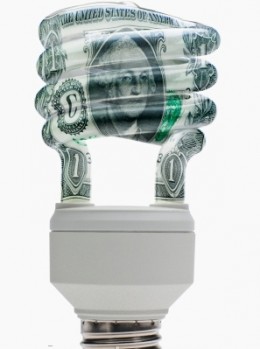
Reducing the Energy Demand of your Aquarium
As with any other household appliance, the different components of a home aquarium can cause your energy costs to quickly accumulate over the course of a year, and can come as a significant surprise to many people. Tanks can often consume more electricity than a television or a computer. Shopping around for energy efficient versions when purchasing new equipment, just as you would for other household appliances or green goods, is clearly an excellent idea.
Besides keeping a sharp eye open for low-cost electricity deals, we can further reduce energy consumption and electricity bills by remembering to switch off lights and devices, like computers and televisions when they aren't in use. We also can save by taking other steps to improve efficiency, by making the change to energy-saving light bulbs. Thankfully, there are a few methods to keeping your aquarium energy consumption in check
An aquarium's different parts comprise lights, filters and heaters. Let us look at the way you can save on each.
Light
Using energy efficient lighting, like compact fluorescent bulbs and LEDs, can make all the difference to your energy bills. Fluorescent lights are more effective than incandescent or halide lamps. You might also conserve by just using lights when necessary.
Filters
Although needed to be functioning 24-hours a day, correctly sizing your filter to how big your tank can save you some dough. Consult the local aquatic community or your local fish shop if you are unsure what kind of filter you will need.
Heat
Your aquarium's temperature must be set based on the sort of fish you keep inside it. If you aren't sure what that optimum temperature is, ask an expert. When you've got this figure, check the temperature than it must be if it is higher and reduce it. Some heater brands in today's market, like Eheim, are more efficient than others.
Heat loss can be minimized through the use of polystyrene insulation behind and underneath the aquarium, and on the inside of outer walls. Just as wall and ceiling insulation can dramatically reduce heat loss from rooms, ensuring your aquarium is at least partially insulated is among the most effective means of reducing the cost of heating your aquarium.


